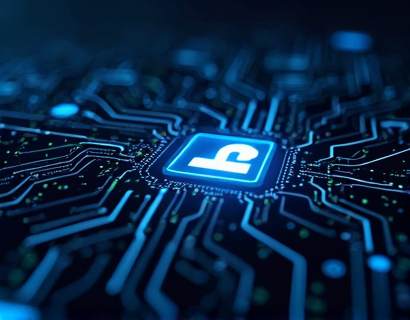Advanced Legacy File Password Recovery: Unlocking Forgotten Data with Cutting-Edge Technology
In today's fast-paced digital world, data is the lifeblood of any organization. However, as technology evolves, many businesses find themselves grappling with legacy files that are often locked behind forgotten passwords. These files, which may contain critical information, can become inaccessible, leading to lost productivity and frustration. Fortunately, advanced legacy file password recovery solutions have emerged, enabling tech-savvy professionals and businesses to efficiently recover forgotten data. This article explores the importance of unlocking legacy files, the technology behind advanced decryption software, and how these solutions enhance productivity while maintaining data security.
The Importance of Legacy File Access
Legacy files are documents, spreadsheets, databases, and other types of data that were created using older software or systems. As organizations upgrade their technology, these files may become obsolete, and the software required to access them may no longer be available. This can pose significant challenges, especially when critical information is locked away behind a password that has been forgotten over time.
Accessing legacy files is crucial for several reasons:
- Data Preservation: Legacy files often contain valuable historical data that can inform current business decisions.
- Compliance: Many industries are subject to regulations that require the retention of certain records. Accessing legacy files ensures compliance with these regulations.
- Continuity: Businesses may need to reference past projects or client interactions, making access to legacy files essential for continuity.
- Cost Efficiency: Recovering and utilizing existing data can be more cost-effective than recreating lost information.
Challenges of Legacy File Access
Despite the importance of accessing legacy files, several challenges can hinder recovery efforts:
- Obsolete Software: Many legacy files were created using outdated software that may no longer be supported, making it difficult to open them.
- Forgotten Passwords: As employees come and go, passwords for legacy files can be forgotten, leaving critical data locked away.
- Data Corruption: Over time, files can become corrupted, further complicating recovery efforts.
- Security Concerns: Attempting to recover passwords without the right tools can lead to data breaches or loss.
Advanced Decryption Technology
To address these challenges, advanced decryption technology has been developed to recover forgotten passwords from legacy files. This technology employs sophisticated algorithms and techniques to unlock files securely and efficiently. Here are some key features of advanced decryption software:
- Brute Force Attacks: This method systematically tries every possible combination of characters until the correct password is found. While time-consuming, it is effective for shorter passwords.
- Dictionary Attacks: This technique uses a list of common passwords and phrases to attempt to unlock the file. It is particularly useful for files secured with weak passwords.
- Mask Attacks: Users can specify certain criteria about the password (such as length and character types), allowing the software to focus its efforts and speed up the recovery process.
- GPU Acceleration: Many advanced decryption tools utilize the power of graphics processing units (GPUs) to perform calculations faster than traditional CPU-based methods.
Enhancing Productivity with Data Recovery Solutions
Recovering forgotten passwords and accessing legacy files can significantly enhance productivity for tech-savvy professionals and businesses. Here are some ways in which advanced decryption software contributes to improved efficiency:
- Quick Access to Information: With the ability to unlock legacy files, employees can quickly access the information they need to make informed decisions.
- Reduced Downtime: By recovering lost data, businesses can minimize downtime and maintain operational continuity.
- Streamlined Workflows: Access to historical data allows for smoother workflows, as employees can reference past projects and client interactions without delay.
- Improved Collaboration: Teams can collaborate more effectively when they have access to all relevant data, regardless of when it was created.
Maintaining Data Security
While recovering forgotten passwords is essential, it is equally important to maintain data security throughout the process. Advanced decryption software is designed with security in mind, ensuring that sensitive information remains protected. Here are some best practices for maintaining data security during password recovery:
- Use Trusted Software: Always choose reputable decryption software from trusted sources to minimize the risk of malware or data breaches.
- Backup Data: Before attempting to recover passwords, create backups of all files to prevent data loss in case of corruption during the recovery process.
- Limit Access: Ensure that only authorized personnel have access to the decryption software and the files being recovered.
- Monitor Activity: Keep track of all recovery attempts and monitor for any suspicious activity to safeguard against potential security threats.
Case Studies: Successful Data Recovery
To illustrate the effectiveness of advanced legacy file password recovery solutions, consider the following case studies:
Case Study 1: A Financial Institution
A financial institution had several legacy files containing critical client information that were locked behind forgotten passwords. The organization faced compliance issues due to the inability to access these files. By implementing advanced decryption software, the IT team was able to recover the passwords and unlock the files within a matter of hours. This not only ensured compliance but also allowed the institution to provide better service to its clients.
Case Study 2: A Marketing Agency
A marketing agency had a collection of legacy files containing past campaign data that were essential for planning future projects. However, the passwords for these files had been forgotten after a staff turnover. The agency utilized advanced decryption technology to recover the passwords, enabling them to access valuable insights from previous campaigns. This led to more effective marketing strategies and improved client satisfaction.
Future Trends in Data Recovery Technology
As technology continues to evolve, so too will the methods and tools used for data recovery. Here are some future trends to watch in the field of advanced legacy file password recovery:
- Artificial Intelligence: AI-driven algorithms are expected to enhance the efficiency and accuracy of password recovery processes, making it easier to unlock files.
- Cloud-Based Solutions: As more businesses move to cloud storage, recovery solutions will likely adapt to address the unique challenges of cloud-based legacy files.
- Integration with Other Tools: Future recovery software may integrate with other data management tools, providing a seamless experience for users.
- Enhanced Security Features: As data breaches become more prevalent, recovery solutions will likely incorporate advanced security measures to protect sensitive information during the recovery process.
Conclusion
In conclusion, advanced legacy file password recovery solutions play a vital role in helping tech-savvy professionals and businesses unlock forgotten data. By utilizing cutting-edge technology, organizations can efficiently recover forgotten passwords, ensuring seamless access to critical information. This not only enhances productivity but also maintains data security, allowing businesses to thrive in an increasingly digital landscape. As technology continues to advance, the future of data recovery looks promising, with innovative solutions on the horizon that will further empower users to unlock their digital history with ease and security.











































